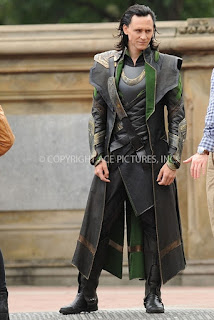There seems to be a misconception these days that characters
in books, films and games are only good characters if they’re likeable or relatable.
I think personally this shows a fundamental inability to
recognise that you can like a character without agreeing with their principles
or actions.
Yes I understand it's a video of a man playing fifa 11 but trust me, he's talking about the likeability of characters.
Is a big thing to be able to relate with characters,
empathise and become emotionally invested in their story and actions. This and
the desire to know more about a character are large parts of what drives many
gamers to pursue the game and it’s storyline. A good character is adored by
fans and is the centre of not only his own story in-game, but also fan
theories, fan art and fiction written by fans. A memorable, beloved, character can
be the driving force behind a successful game, film or book franchise; think of
Lara Croft, or Harry Potter. All icons in their own right, their franchises
would be just another drop in the fictional ocean if their figureheads hadn’t
been so memorable to fans.
 |
| Curse of darkness Castlevania; generating memorable character with girlish hair (http://castlevania.armster.org/scans_cod.php) |
As a child most of my favourite characters came from fantasy
Literature – Garion of the Belgariad, Harimad –Sol from the Blue Sword and Gil
and Rudy from the Darwath Trilogy. It’s certain what made them memorable for
me; normal people, often young, brought up in a normal setting and risen to
greatness and adventure through time. It’s easy to see how these characters
would interest and inspire a young mind who’s grown up in the same little
village for her entire life. They’re relatable; everyone’s felt like that
little person before. Aimless, small, pointless. To see a character break from
this gives the reader hope that they can too. They may not even have to; living
through the character is often enough and this investment in the character’s
success and failure. This is a simple wish fulfilment technique.
As I’ve gotten older, my taste in characters has changed;
though still firmly routed in the fantasy genre, it’s diversified in terms of
character type. I no longer need to find a character I relate to personally to
generate interest in them.
 |
| Finding a decent picture of Garion is suprisingly tricky |
One of the characters I find most interesting right now,
along with half the internet, is Loki Laufeyson. Not only from the Avengers
Assemble film but also from Marvel comics, particularly journey into mystery’s
recent Kieron Gillan run. Loki’s actions and Loki’s origins are by no means
relatable; he’s stolen, murdered and generally proven himself time and again to
be a reprehensible character not to be trusted or sympathized with. But that’s
not the only things that make a character memorable; Loki is characterized by
his ruthless nature, sharp cunning and distinctive dress sense. He’s an
antithesis to Thor the hero and he’s equally as beloved despite a nature that
should be repellent.
 |
| Loki's in your City, destroying your infastructure and coveting your Tesseracts |
The ability to do things the reader might want to do but
knows is unreasonable is another good reason for a memorable character; remembered
for their actions and the shock they cause, they also fulfil the wish fulfilment
part of the human psyche; the character will do what you wouldn’t dare, and you’ll
love them for it; for who doesn’t desire to be at least a little wicked?
Of course it’s the character’s design that makes them recognisable;
at a glance you can differentiate between Link, Sonic and Mario. It’s the
design that makes you notice and recognise, but it’s definitely the job of the
script and the acting to make the character memorable. With the best design in
the world, if a character is one dimensional, wooden or boring then all the
fans will say is ‘What a shame; they looked so promising’.
No comments:
Post a Comment